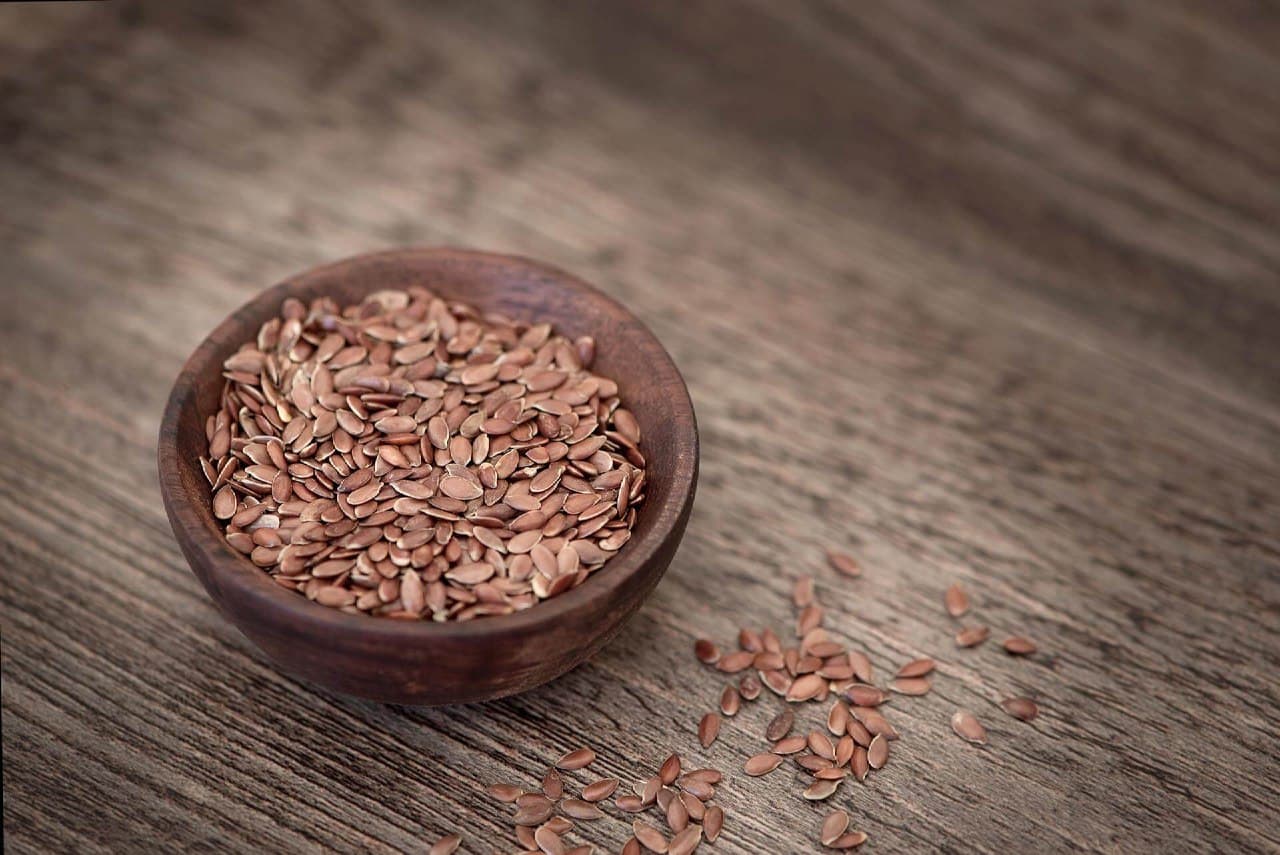
Flaxseed For Your Dog
Flaxseed has long been a healthy supplement for dogs and if given regularly as part of their diet, it can increase their well-being and vitality. It’s actually been used for thousands of years to make things like fabric and textiles and has been used to make linseed oil, which is more commonly known as flaxseed oil.
The plant makes little nutty-flavored seeds that are brown and golden in color. Some have actually been found in Egyptian tombs that date back thousands and thousands of years. It’s not recommended to eat them whole, however, if you give them to your dog whole, chances are they are going to pass right through their system without being digested. Instead, you can give them ground-up flaxseed in a chew, like our Omega Chews.
Flaxseed is a great way to add protein and fiber to your dog’s diet, along with some of the other benefits we’ll talk about. Some dog foods already add flax as one of the beneficial ingredients to their formulas, but honestly most dog foods don’t. You will want to read the ingredient list carefully on your dog’s food before you supplement with anything to make sure they aren’t getting too much or too little of a good thing. There are a lot of great benefits for your dog if you add flaxseed to their diet. Let’s take a look at some of them now.
Healthy Digestion
Some dogs suffer from digestive issues and flaxseed has shown to help. Flaxseed is pretty adaptable and can be used in a variety of different situations. Every dog is different but if they are suffering from loose stool or constipation, then flaxseed may help. Their stools should be well-formed and firm, but not hard. Hard-packed stools can cause constipation, and obviously loose and runny stools aren’t good either.
Adrenal Issues
Flaxseeds have a high amount of lignans, especially in the hulls of the seeds. While you can find lignans in other plant sources as well, they are especially high in flaxseeds. The hulls have twenty times the amount of SDG lignan’s than the rest of the seed, so it’s important to get these health-supporting agents from the hulls, which are also high in fiber.
When dogs have adrenal issues, usually what happens is that they have excess hormones that are secreted throughout their bodies. A lot of times this excess secretion is due to a tumor of the adrenal glands or a tumor on the pituitary glands of the dog. Different lignin therapies have shown to positively affect dogs with adrenal issues. Also, because the flaxseeds are high in fiber, it is thought that the fiber increases the volume and frequency of bowel movements and that the added fiber helps to soak up extra toxins in the dog’s system. The dogs are able to more efficiently rid their bodies of these harmful toxins, which is an added benefit.
Also, it’s been shown that the lignans lower estradiol in a dogs’ system and also inhibit aromatase enzymes, and also lowers cortisol, and will actually take the place of estradiol in the dogs’ estrogen receptors in their tissues, which are all beneficial for the dog.
Extra Fatty Acids
Besides the uptick in important things like fiber, protein, and lignans, flaxseeds are also full of essential fatty acids like Omega-3’s that are hugely important for a healthy dogs diet. Omega-3’s are another name for ALA or alpha linoleic acid. They are also full of manganese as well. Omega-3’s are an important and essential nutrient because they play a role in immune function, healthy coat and skin, growth, cell function, normal reproduction and cell membrane structure. You are going to want to make sure that your dog is getting the right amount of essential fatty acids and Omega-3’s and flaxseeds are an easy and safe way to do that.
It’s also thought that any dog that is suffering from inflammatory health conditions, autoimmune conditions or allergic reactions can also benefit from increasing the Omega-3 and Omega-6 ratios in their diet. If your dog is not getting the proper amount of these important nutrients in their diet, one of the first signs you can look for is dry skin or a dull coat that is not shiny. His skin may become dry and scratchy and he may develop other skin conditions. His coat will be dry, dull, and possibly even wiry. His skin may become irritated and he may develop dandruff. His skin and coat is a direct reflection of his diet and whether or not he is getting the proper nutrients, in the proper amounts. If left untreated it could get worse, or even get infected.
When the natural oils of his coat get depleted or he’s not getting enough healthy fats and fatty acids then it will open him up to any number of skin conditions and other problems. That’s why it’s so important to supplement their diet with flaxseed to make sure their coat and skin stay in great condition.
Healthy Kidneys, Healthy Immune System, Healthy Joints
Dogs that suffer from kidney disease have also seen a reduction in kidney inflammation by adding more Omega-3 essential fatty acid to their diet. Those dogs that have kidney problems are able to help extend their lives by creating more triglycerides, and the omega-3’s help increase the blood flow to their organs and help keep their lipid levels up which will, in turn, help them increase their triglycerides.
With the increase of lignans, your dog’s immune system and function will increase as well. It also helps your dog mitigate inflammation, which will have a direct positive impact if they suffer from arthritis or other inflammatory disorders. It will also help them increase their mobility, and fight off any inflammation related infections that may occur.
Summary
Flaxseed is only going to help your dog. Flaxseed is full of extra fiber, so make sure they are drinking enough water to properly excrete the excess fiber. Again, you will want to use ground flaxseed like in our Omega Chews and not whole flaxseed. If you feed it to them whole, they will most likely just pass the whole see and you will not see any added benefit.













